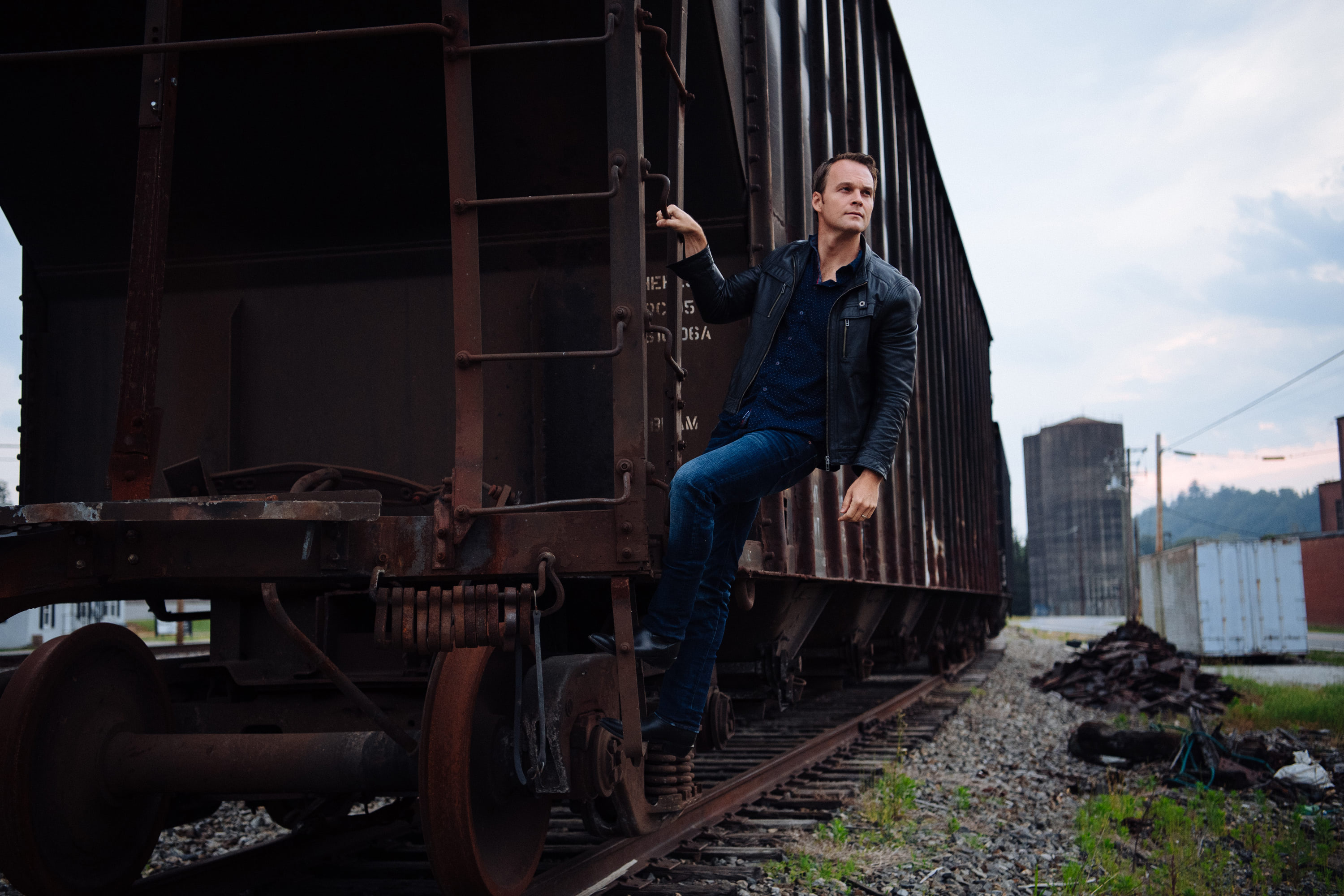
This May, Music of Remembrance (MOR) celebrates its 25th Anniversary with a three-city tour of Before It All Goes Dark, a new opera by Jake Heggie and Gene Scheer based on reporting by legendary Chicago journalist Howard Reich in the Chicago Tribune. This world premiere run kicks off with a performance in Seattle’s Benaroya Hall on May 19, 2024, and continues to San Francisco’s Presidio Theatre on May 22, 2024, before concluding with two performances on May 25-26, 2024, in collaboration with Chicago Opera Theater, at the Studebaker Theater in Chicago.
Music of Remembrance is acclaimed for developing new art works that confront compelling issues in today’s world. Recent premieres have included works addressing the separation of families at the US-Mexico border, the worldwide refugee crisis, and the struggle for women’s rights in Iran. This season’s premieres bring the organization’s total commissions to 45 new works, including song cycles, chamber works, operas, film scores, and choreography – all persuasive testimonies for tomorrow.

Bass-baritone Ryan McKinny stars as Gerald “Mac” McDonald in Before It All Goes Dark / Photo by Jiyang Chen
This one-act opera is the organization’s fifth commission of composer Jake Heggie and his 21st collaboration with librettist Gene Scheer. The plot is based on the compelling true story of Gerald “Mac” McDonald, a gravely ill and deeply troubled Vietnam War veteran, which was first reported by Howard Reich in the Chicago Tribune. Mac grew up poor, angry, and disenfranchised in the suburbs of Chicago, his family’s Jewish ancestry hidden from him – until Reich tracked him down as part of an investigation inspired by his own family’s experiences during the Holocaust. When Mac learned that he was heir to a priceless art collection stolen by the Nazis, the two men embarked on a quest to Eastern Europe to uncover secrets of the past.
“When Howard Reich told me Mac’s story, I immediately felt a shiver of recognition,” said composer Jake Heggie. “The story is bursting with surprising influences, soaring vocalism, and remarkable intimacy. It is a very specific American story, yet universal, for we are all in some way heirs to the tragedy of the Holocaust.”
“When I first identified Mac as the heir to this invaluable art collection, I had no idea how this news would change his life,” said longtime Chicago Tribune journalist Howard Reich. “If Mac were alive today, I believe he’d be stunned and pleased to discover that the world still wants to hear from a long-forgotten Vietnam vet. Thanks to Jake Heggie, Gene Scheer, and Music of Remembrance, Mac’s story of tragic loss and surprising redemption will live forever on the operatic stage.”
Bass-baritone Ryan McKinny, who recently opened the Metropolitan Opera season in Heggie’s Dead Man Walking, will create the role of Mac. In her MOR debut, mezzo-soprano Megan Marino takes on three characters: Mac’s neighbor, a curator at the Jewish Museum in Prague, and Mac’s ancestor, Emil Freund. Each performance of Before It All Goes Dark will begin in Freund’s vibrant salon, where audiences will be surrounded by projections of the looted art and the sounds of Czech music – all written by composers who would ultimately perish in concentration camps. The action then moves to Mac’s sparse, dark apartment in Chicagoland 63 years later, drawing a sharp distinction between Mac’s reality and the astonishing world of color, identity, and connection embodied by Freund’s collection.
“The world continues to struggle with questions – moral, legal, and political – about what it means to own works of art,” says Music of Remembrance Artistic Director Mina Miller. “Without giving us easy answers, Before It All Goes Dark explores the complicated relationship between art and identity, while challenging audiences to consider the unexpected ways that historical events affect later generations. In many ways, this work encapsulates what Music of Remembrance is about – demonstrating the power of art to make a difference in the world.”
Before It All Goes Dark
World Premiere Opera
Composer: Jake Heggie
Librettist: Gene Scheer
Conductor: Joseph Mechavich
Director: Erich Parce
Mac: Ryan McKinny
Sally/Misha/Emil: Megan Marino
Chamber Ensemble: Demarre McGill, flute; Laura DeLuca, clarinet; Mikhail Shmidt, violin; Susan Gulkis Assadi, viola; Eric Han, cello; Jonathan Green, double bass; Jessica Choe, piano
Sunday, May 19, 2024 @ 4:30pm
Seattle, Washington
Benaroya Hall (200 University Street)
Tickets $60; Students $25 (ID required)
musicofremembrance.org/dark
Wednesday, May 22, 2024 @ 7:30pm
San Francisco, California
Presidio Theatre (99 Moraga Avenue)
Tickets $40-75
musicofremembrance.org/darksf
Saturday, May 25, 2024 @ 7:30pm
Sunday, May 26, 2024 @ 3pm
Chicago, Illinois
in collaboration with Chicago Opera Theater
Studebaker Theater (410 South Michigan Avenue)
Tickets $40-75
cot.org/season/dark
About Music of Remembrance
Established in 1998, Music of Remembrance (MOR) has made a unique impact through works that honor the resilience of all people excluded or persecuted for faith, ethnicity, gender, or sexuality. Its programs pay tribute to historic memory, and directly confront challenges to human rights and dignity today. In addition to its work discovering and performing music from the Holocaust, MOR is admired around the world for its leadership in commissioning and premiering new works by leading composers, including varied chamber ensembles, song cycles, choral works, dance music, film scores, musical dramas, and full-length operas. MOR’s online concerts, nine albums, three documentary films, and many outreach programs have added to the impact experienced by live audiences. MOR’s annual David Tonkonogui Memorial Award welcomes new generations along on this journey, nurturing young musicians who seek to address issues of human rights through their art.
About Jake Heggie
American composer Jake Heggie is best known for Dead Man Walking, the most widely performed new opera of the last 20 years, with a libretto by Terrence McNally, and his critically acclaimed operas Moby-Dick, Three Decembers, and It’s a Wonderful Life, all with libretti by Gene Scheer. In addition to 10 full-length operas and numerous one-acts, Heggie has composed more than 300 art songs, as well as concerti, chamber music, choral, and orchestral works, which have been performed on five continents. A bold new production of Dead Man Walking opens the Metropolitan Opera’s 23/24 season, while Intelligence, created with Jawole Zollar and Gene Scheer, receives its world premiere on opening night of Houston Grand Opera’s season. The Elements: Fire, Heggie’s new commission for violinist Joshua Bell, premieres at Germany’s Elbphilharmonie and tours to major stages in New York, Los Angeles, Seattle, Chicago, and Hong Kong.
About Gene Scheer
Gene Scheer’s collaboration with Jake Heggie is a truly remarkable creative partnership. Scheer has crafted powerful works with other opera composers as well: Tobias Picker (An American Tragedy and Thérèse Raquin), Joby Talbot (Everest), and Jennifer Higdon (Cold Mountain). A composer in his own right, Scheer has written songs for Renée Fleming, Sylvia McNair, Stephanie Blythe, Jennifer Larmore, Denyce Graves, and Nathan Gunn. Documentary filmmaker Ken Burns featured Scheer’s song “American Anthem” in his Emmy-winning documentary “The War,” and millions of people around the world heard President Biden share inspiring lines from that song in his inauguration address
Howard Reich was born in Chicago and at age 10 moved with his family to Skokie, a northern suburb that was a nexus of Holocaust survivors like his parents. At age 16, Howard happened on the film “An American in Paris” and instantly became obsessed with music. By 18 he was a piano performance major at Northwestern, and at 22 he began freelancing articles on music for the Chicago Daily News. The next year he started contributing arts coverage to the Chicago Tribune, where he was hired full time in 1983 and spent his entire newspaper career. Howard’s stories took him to London, Paris, Warsaw, Vienna, Moscow, Munich, Prague, Havana, Panama and other locales, as well as deep into one of the most culturally vibrant cities in the world: Chicago. After 30 years as the Tribune’s jazz critic, Howard also became the newspaper’s classical and opera critic, serving in this joint capacity until he retired from the newspaper in 2021. Additionally recognized as the Emmy-winning writer/producer of three documentary films and author of six books, including “Prisoner of Her Past: A Son’s Memoir” and “The Art of Inventing Hope: Intimate Conversations with Elie Wiesel,” Howard lives in a suburb of Chicago with Pam Becker, his wife, a retired Tribune editor.
